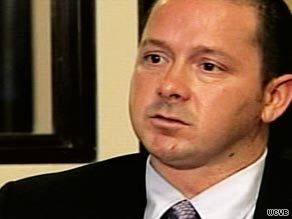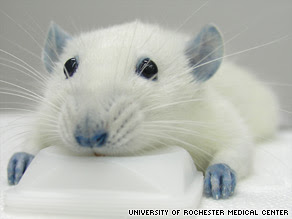
This morning, I'm thinking of this piece of commentary by George Carlin:
I don't like words that hide the truth. I don't like words that conceal reality. I don't like euphemisms, or euphemistic language. And American English is loaded with euphemisms. Cause Americans have a lot of trouble dealing with reality. Americans have trouble facing the truth, so they invent the kind of a soft language to protect themselves from it, and it gets worse with every generation. For some reason, it just keeps getting worse. I'll give you an example of that.
There's a condition in combat. Most people know about it. It's when a fighting person's nervous system has been stressed to it's absolute peak and maximum. Can't take anymore input. The nervous system has either (click) snapped or is about to snap.
In the first world war, that condition was called shell shock. Simple, honest, direct language. Two syllables, shell shock. Almost sounds like the guns themselves.
That was seventy years ago. Then a whole generation went by and the second world war came along and very same combat condition was called battle fatigue. Four syllables now. Takes a little longer to say. Doesn't seem to hurt as much. Fatigue is a nicer word than shock. Shell shock! Battle fatigue.
Then we had the war in Korea, 1950. Madison avenue was riding high by that time, and the very same combat condition was called operational exhaustion. Hey, we're up to eight syllables now! And the humanity has been squeezed completely out of the phrase. It's totally sterile now. Operational exhaustion. Sounds like something that might happen to your car.
Then of course, came the war in Viet Nam, which has only been over for about sixteen or seventeen years, and thanks to the lies and deceits surrounding that war, I guess it's no surprise that the very same condition was called post-traumatic stress disorder. Still eight syllables, but we've added a hyphen! And the pain is completely buried under jargon. Post-traumatic stress disorder.
--
Yesterday, I tweeted the following:
When did "regret" become the new "apologize"?
A friend replied:
I think it's a more formal way of saying, "I'm sorry you feel that way."
And she's right. We live in an age defined by the art of "mis-remembering." Public perception is only skin deep, and lasts as long as our next click of the refresh button, our next Facebook quiz, our next Tweet. We associate singular words with presidents (nuke-ular, stupidly) and have agreed to trade journalistic integrity in for speed of reporting.
--
So what does this all have to do with the the gentleman pictured above?
--
That man is Justin Barrett, a Boston police officer who was recently stripped of his gun and badge and suspended from his military duties as a captain in the National Guard.
Why?
In response to a editorial in the Boston Globe, a piece that discussed the recent arrest of Henry Gates, Barrett wrote and mass-sent an e-mail that included the following:
[if I would have] been the officer he verbally assaulted like a banana-eating jungle monkey, I would have sprayed him in the face with OC (oleorosin capsicum, or pepper spray) deserving of his belligerent non-compliance.
CNN goes on to report that Barrett used the "jungle monkey" phrase four times, three times referring to Gates and once referring to Abraham's writing as "jungle monkey gibberish."
And while all of this is terrible and repugnant, I'm comfortable with the notion that Mr. Barrett will get his just due. I don't think you can change the minds of hate mongers like Mr. Barrett, and so I don't concern myself with the thought.
What does concern me is this, and it's the lead from the CNN article:
The Boston police officer who sent a mass e-mail in which he compared Harvard professor Henry Louis Gates Jr. to a "banana-eating jungle monkey" has apologized, saying he's not a racist.
Really?
Not a racist?
But wait--there's more! On Larry King last night, Barrett said:
I would like to take this opportunity to offer fellow police officers, soldiers and citizens my sincerest apology over the controversial e-mail I authored. I am not a racist. I did not intend any racial bigotry, harm or prejudice in my words. I sincerely apologize that these words have been received as such. I truly apologize to all.
Let's look at some of the more interesting points in this apology:
-Controversial e-mail: controversial--or hate speech?
-I am not a racist: No, probably not. I mean, who doesn't use the phrase "banana-eating jungle monkey" regularly?
-I did not intend any racial bigotry, harm or prejudice in my words: I've got no witty response to this besides: Yes! Yes you did!
-I sincerely apologize that these words have been received as such: So wait. Wait a minute. Are you apologizing? Or are you apologizing that we interpreted you using the phrase "banana-eating jungle monkey" as racist? Because there's a big difference.
-I truly apologize to all: Interesting, because this is the only time he comes close to apologizing to the one person he should have been apologizing to in the first place--you know--the guy he referred to as a "banana-eating jungle monkey?"
--
Now, I may not have gone to law school. And really, there's no legal standard of what constitutes an apology anyway. But in the court of public opinion there is, and while the millions who stand behind men like Barrett (whether publicly or not) may not agree, the ruling is clear:
This isn't an apology.
And we haven't even gotten to my favorite part yet, which is this:
Asked what led him to choose to use such language, he said, "I don't know. I couldn't tell you. I have no idea."
He added, in response to a question, that he had never used such language before.
Well let's help you out, Justin Barrett:
You're a racist!
But again, as much as I don't condone it, I don't see what I can do to change the fact that Mr. Barrett dislikes people because of the color of their skin. But what bothers me more is the Larry King's of the world allowing this man, and others like him, to use their platform as a place of reconciliation. As a safe haven. A time when he can bend the language in his favor, and in some ways, flat-out lie.
And all in the name of ratings.
All in the name of getting him on, getting him mic'd, and getting him to talk.
People like Larry King hope that Mr. Barrett comes on their program and makes a scene. They want us to talk. They want us to tweet. They want us to get angry and write letters, because attention is ratings, and ratings mean advertising dollars.
--
The ending of the George Carlin piece is as follows:
I'll bet you if we'd of still been calling it shell shock, some of those Viet Nam veterans might have gotten the attention they needed at the time. I'll betcha. I'll betcha.
The same is true now--if we were still calling people like Mr. Barrett a racist, and truly holding him up to the scorn he deserves, and not allowing him to own up to it on his terms, terms that allow him to apologize while not really apologizing, maybe spectacles like the "Beer Summit" would mean something.
But for now, the teaching moment remains nothing more than a photo op, and the pictures that are plastered all over the news, the ones of our President and our Vice President and a major Black scholar and his arresting officer, to some, they are still just shots of a couple of porch monkeys and a couple of crackers.
And I'm not okay with the idea that people like Justin Barrett are fine with that.
More soon.
JS

















